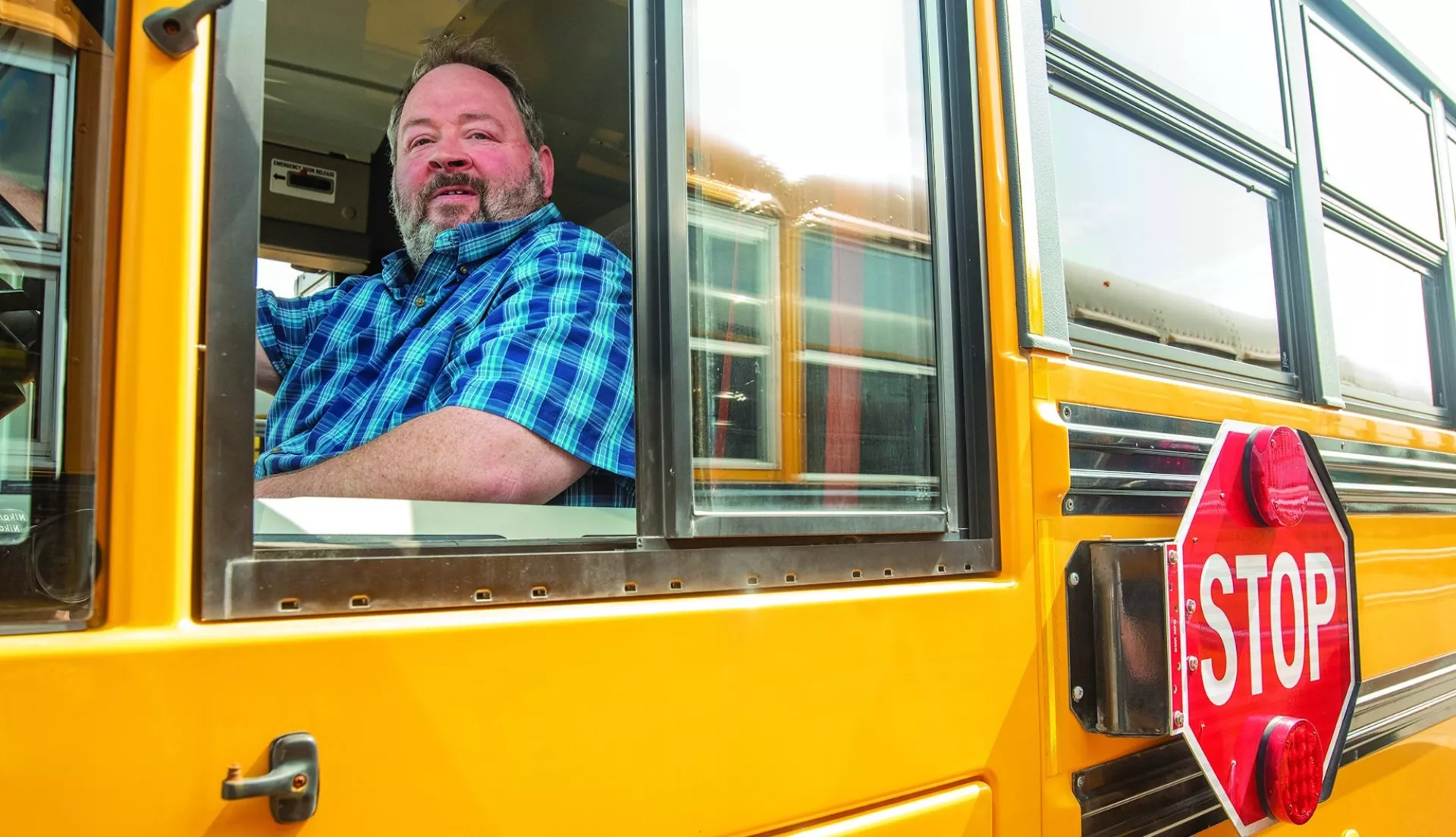Key Takeaways
- Around the country, Education Support Professionals (ESPs) are launching ESP Bill of Rights campaigns to organize for the pay and benefits they deserve.
- In the wake of Trump administration threats to education, Congress has introduced a resolution Paraprofessionals and Education Support Staff Bill of Rights.
- So far there are 12 statewide ESP Bill of Rights campaigns planned or underway with more expected to join this national movement.
Averie Jackson, a preschool teaching assistant in Kansas City, Kansas, has deep connections to her school community, spanning generations.
Her great grandfather, Patrecio, took a job as a custodian at West Middle school in Kansas City, thinking it would be a steppingstone on his path to providing a better life for his family, who were newcomers to the United States. Instead, he would teach himself English, work his way up to head custodian, and stay in that position until he retired.
Times have changed in the generations since Jackson’s great grandfather kept his school clean and safe. Now, most education support professionals (ESP) don’t earn salaries high enough to support families, and it’s difficult to stay in the jobs they love until retirement without second or even third jobs.
Kansas Organizes a Statewide ESP Bill of Rights Campaign
But Jackson, as a member of the Kansas National Education Association, who recently launched a statewide ESP Bill of Rights campaign, has a platform to advocate for higher salaries and other benefits for herself and fellow Kansas ESPs.
Now, she sees a long career in the district that employed her great grandfather, then her grandmother. It’s also the same district her parents attended, where she, too, went to school, and now her own children.
“With membership in the union and our ESP Bill of Rights, NEA has given me a larger platform to advocate for my community,” Jackson says. “I want children, who grew up just like me, to see what I am doing as something possible for them as well -- for them to believe they can be more than what society so often tells them that young Black and Brown kids can be.”

A Growing Movement Around the Country
Kansas is one of twelve states around the country who have adopted NEA’s ESP Bill of Rights or are in the planning stages to launch the campaign.
Massachusetts, Maryland, and Illinois are already seeing the benefits of their campaigns which are in full swing. For example, Maryland’s Howard County was able to provide its 2,500 paraeducators access to devices paid for by their schools; in Massachusetts, Weymouth ESPs won a 35.5% wage increase.
Vermont launched an Educators Bill of Rights, which is inclusive of ESP and certified members. [Colorado, Delaware, Michigan, and Washington, vary from beginning planning stages to developing their strategies for implementation to organizing ESP members for engagement. And now Arizona, Kansas, Wisconsin, and North Carolina have kicked off their state’s ESP Bill of Rights.
By banding together for collective action, the ESPs throughout these states are saying, “One job should be enough!”
Congressional Support
Amid Trump attacks on education, Sen. Edward J Markey (D-Mass), reintroduced the Paraprofessionals and Education Support Staff Bill of Rights, a resolution calling for dignified wages, benefits, and working conditions for paraeducators, classroom assistants, bus drivers, custodial workers, and other essential school staff who far too often work for low wages, few benefits, and without job security. The resolution is cosponsored by Senators Alex Padilla (D-Calif.), Jeff Merkley (D-Ore.), Bernie Sanders (I-Vt.), Elizabeth Warren (D-Mass.), Cory Booker (D-N.J.), and Martin Heinrich (D-N.M.).
“ESPs play a critical role in strengthening our schools and communities, dedicating themselves to ensuring students are safe, healthy, and ready to learn every day, while also helping to create positive, supportive learning environments. Unfortunately, they often don't receive the compensation, benefits, or recognition they truly deserve. Their contributions are critical to the success of our students, especially now, as the Trump Administration targets public education,” says NEA President Becky Pringle. “Passing the Paraprofessional and Education Support Staff Bill of Rights would show that Congress recognizes and values the essential contributions these dedicated workers make both inside and outside the classroom.”
In 2023, Pringle called upon NEA state affiliates to join NEA’s ESP Bill of Rights campaign, which outlines the needs and wants of ESPs. States are using the campaign to advocate for ESPs' rights and recognition as essential members of the educational team, addressing issues like fair compensation, safe working environments, and access to affordable healthcare.
NEA’s ESP Bill of Rights States that all ESPs Deserve:
- Fair Compensation. One job should be enough! ESPs should not have to work multiple jobs to maintain financial independence.
- Recognition and Respect. ESPs play a vital role on the education team and in students’ lives inside and outside the classroom. They keep our schools running and our students safe, healthy, and ready to learn every day. They deserve to be respected and recognized as accomplished professionals.
- Safe and Healthy Work Environment. ESPs deserve a safe and healthy workplace that is free of violence, including physical, verbal, and emotional abuse, and free of exposure to hazardous materials. ESPs deserve clear safety protocols, appropriate supplies, safely maintained equipment, training on workplace regulations, and whistleblower protections.
- Affordable Healthcare. ESPs should have access to affordable health insurance.
- Paid Leave. ESPs deserve paid leave, including personal days, sick days, parental/caregiver leave, and Family and Medical Leave Act (FMLA) benefits.
- Professional Learning and Career Advancement. ESPs deserve high-quality, job-related professional learning and accessible opportunities for career advancement. Seniority rights must be protected when ESPs pursue promotions and request transfers, and at times of layoffs or furlough.
- Workload and Staffing. ESPs have the right to a workload that allows them to excel in their assigned positions. ESPs deserve a voice in establishing fully staffed shifts, clear work protocols, and resources that support their careers.
- Retirement. ESPs have the right to a secure retirement. All their years of service should count toward a pension.
- Protection from Privatization. ESPs should be free of the threats of privatization that risk the stability of school communities, silence the voice of employees, and further undermine the value of the services they provide in their jobs.
- Right to Bargain. ESPs deserve a strong voice in their workplace that includes the right to join their union and advocate for the rights and protections they deserve. Bargaining and advocacy ensure they enhance student learning and improve educator working conditions–benefiting students, schools, and the community as a whole.
Start a Campaign in your State
NEA offers a variety of resources, including prerecorded webinars from states who have successful campaigns underway with nuts and bolts of how do it, sample bargaining language, legislation, and branding and advocacy materials. Learn more at nea.org/espbillofrights.







